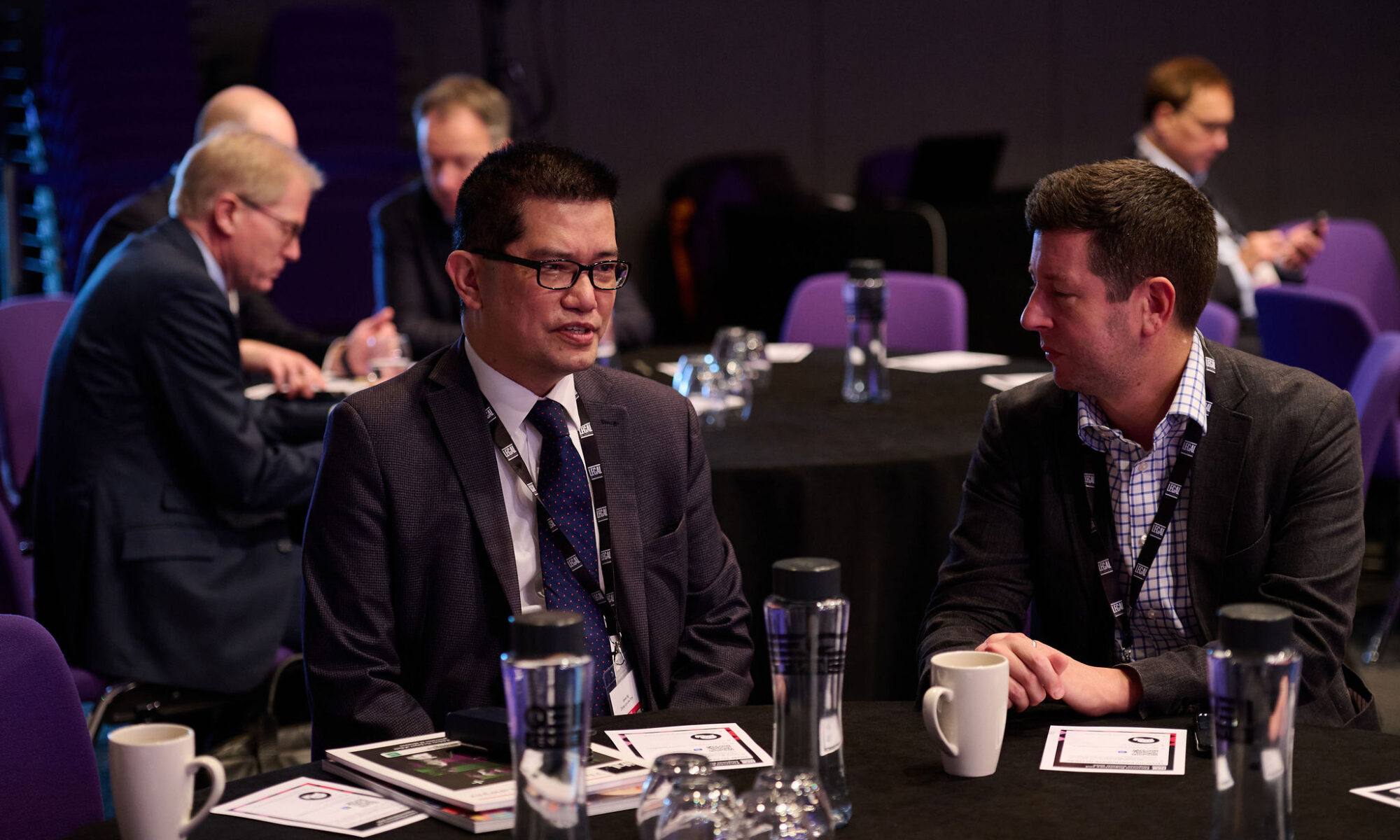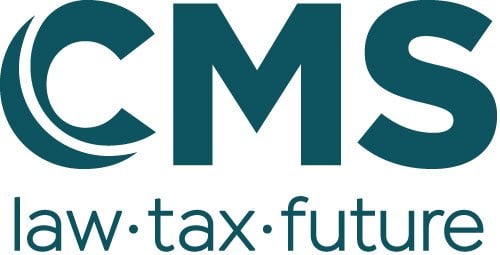Event Report
Concluding Legalease’s trio of agenda-setting annual summits in London to discuss contentious work, on 9 November 2023 in-house lawyers, private practice solicitors and the Bar gathered for Legal Business and The Legal 500’s Financial Regulatory and Disputes summit. Attendees at the Queen Elizabeth II Centre had plenty to discuss, covering developments from the venue’s neighbours in the Palace of Westminster and the United Kingdom Supreme Court.
The main auditorium played host to panel discussions on the legal issues that matter to the financial services industry, from civil fraud claims and attempts to defraud banks using the courts through to civil and criminal regulation of controlled sectors. The event was sponsored by barristers’ chambers 3 Verulam Buildings and One Essex Court, as well as Ashurst, Boies Schiller Flexner, CMS, King & Spalding, Milbank and Seladore Legal.
After editor of Legal Business Nathalie Tidman opened the event, the first panel – chaired by Sonia Tolaney KC of One Essex Court, covered many of the key agenda setting issues – including Philipp v Barclays Bank, in which the UK Supreme Court slammed the door in the face of retail customers seeking to apply the Quincecare duty to not make suspicious payments to banks in retail contexts, and the judgment a fortnight later in R (PACCAR) v CAT, in which the court invalidated litigation funding agreements which grant funders a percentage of damages recovered by the funded party. Mr Justice Adam Johnson did not suggest that this would strike a death blow for group litigation – he observed that there was an uptick in the use of representative actions coming down the track. ESG related litigation was raised as a prospect – Chris Bushell of Herbert Smith Freehills observed that crypto and ESG claims – focussing on all three of the E, S and G prongs – were likely to feature on court lists in the coming years. Alison Kellett of Norton Rose Fulbright, however, observed that in its ClientEarth v Shell judgment the High Court took a decisive stopping a derivative action brought by the climate activist group, which bought a small number of shares in the company.
The second session, chaired by Saima Hanif KC of 3 Verulam Buildings, focussed on contested regulatory cases. Gregory Brandman of Eversheds Sutherland offered a ray of hope to those subjected to the tribunal process by the FCA: “don’t discount the fact that pretty much anything can happen in the tribunal, however dark and gloomy your prospects appear – you never know what might turn up in terms of developments that might lead the tribunal to draw adverse inferences against the FCA”. Disclosure issues were a key subject matter of discussion, with the FCA coming under much criticism for its failure to disclose exculpatory evidence – an issue, along with a lack of objectivity, a willingness to rely on firms’ criticisms of their staff, and delay, which the Upper Tribunal criticized the regulator for in Seiler, Whitestone & Raitzin v FCA.
After a coffee break, Aaron Stephens and Peter Isajiw of King & Spalding contrasted the two sides of the Atlantic in terms of regulatory approaches to private communications between participants in regulated sectors and their clients away from recorded company devices – an issue not just affecting those regulated by the Financial Conduct Authority in the UK and America’s SEC and CFTC, but also those in energy regulated by Ofgem. Isajiw identified that US regulations were less protective of employees’ personal data compared to English law, although British regulators would not necessarily be more sympathetic to market participants speaking to clients via personal devices.
Concluding the morning session, Philip Linton and Adam Jamieson of Ashurst discussed the challenges of running an internal investigation into alleged misconduct in a sector. The panel, which also included Nicole Garrood, Catherine Bellsham-Revell and Emma Clancey (in-house at Optiver, Lloyds and Goldman Sachs respectively) worked through a scenario, from the start of an investigation to its aftermath, from both the contentious regulatory perspective and that of employment law. Key issues included maintaining the firm’s legal advice privilege and where appropriate litigation privilege throughout the process, forming the right balance on the investigation team and striking a balance between investigating what needs to be investigated while maintaining appropriate pastoral and legal (including funding independent representation).
As attendees returned from a networking lunch session, One Essex Court and CMS led a colourful session on the challenges banks face defending litigation. The discussion focused on a claim – which solicitors Tom Dane and Vanessa Whitman, and Neil Kitchener KC from the chambers defended – concerning serial fraudster Achilleas Kallakis, who was sentenced in 2013 to eleven years imprisonment for a series of mortgage frauds against Allied Irish Bank. Kallakis’ son brought a claim against CMS client Allied Irish Bank, alleging that it made misrepresentations to sell the assets – claims all found “without foundation” after a five-week trial. Panellists discussed the perils of opposing litigants in person, and opportunities to strike claims out – Kitchener KC lamenting the end of oral applications for permission to appeal.
The following session covered group litigation. Chaired by Julian Stait from Milbank, he discussed this with the firm’s special counsel Emma Hogwood, Derek Holt contributed an economics expert perspective from AlixPartners and Daniel Piccinin KC of Brick Court Chambers also contributed. The session covered issues in the Competition Appeal Tribunal, and the challenges of trying to frame cases which may not obviously be a competition matter through the lens of that legal framework to get claims off the ground. Another issue discussed was the risk of carriage disputes (internecine warfare between potential class representatives) – an issue to grow as more funder-driven cases appear.
After delegates networked and topped up their coffees, the first of two fireside chat sessions covered the heavyweight issues associated. The senior level panel – moderated by Dan Hudson of Seladore, and also including Chris Coltart KC of 2 Hare Court and Nick Querée of Slaughter and May, discussed the new Economic Crime and Corporate Transparency Act, which creates a new criminal offence of corporates of failure to prevent fraud, as well as the extension of corporate liability for a broad spectrum of economic offences. Issues discussed included the broad potential scope of the legislation to cover businesses with overseas affiliates, as well as the prospect of challenges under the European Convention on Human Rights to the reverse burden provisions.
In the final session, Michael Jacobs of Boise Schiller Flexner discussed culture in financial services institutions with Omar Salem, general counsel of Algbra. The session covered issues of how the Financial Conduct Authority would view the culture of regulated financial services institutions – covering both financial and non-financial misconduct, and how outside legal advisors can assist the industry with making improvements in business-wide attitudes to compliance. Key issues included the Senior Managers Conduct Rules, whistleblowing and how broader investor focus on ESG factors affected banks and fintech companies.
Legal Business and The Legal 500 would like to thank all those who attended this in-person event, and all those sponsors and panellists who contributed to an excellent day of insight and networking.








